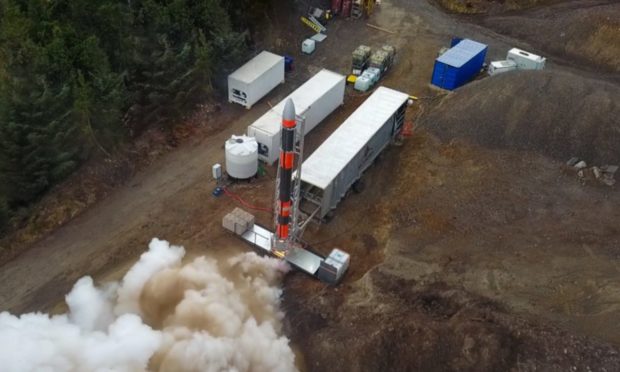The boss of a company that has been testing commercial rocket technology in the north has issued a new call for “space junk” circling the planet to be cleaned up “before disaster strikes.”
The warning, from Volodymyr Levykin, chief executive of Scottish firm Skyrora, came after the remains of an 18-tonne Chinese rocket plunged into the sea near the Maldives recently.
Mr Levykin’s company is developing a “space tug” to tackle the problem of debris that could damage satellites, or even the International Space Station, and believes the UK could become a world leader in the field.
He said: “The world had to watch and hold its breath to see where the debris from the Chinese Long March-5b vehicle would hit the earth. But events like this shouldn’t be happening.
“There are around 34,000 objects above 10cm (four inches) in size in Earth’s orbit that would be considered space junk – 3,000 of which are redundant satellites. Moving at around 10km (six miles) per second, these objects could seriously damage operational satellites or even the International Space Station.
“It’s vital that something is done to address the situation before disaster strikes – and we’re faced with the loss of crucial services, or worse still, loss of life.”
Edinburgh-based Skyrora said it has already successfully completed trials of its space tug, based on a “re-ignitable” rocket engine it is developing, at its development facility in Fife.
Mr Levykin continued: “Orbital transfer vehicles, such as Skyrora’s space tug, are on hand to help safely de-orbit space debris or transport it to a disposal orbit. With the capability of re-firing its engine multiple times and so manoeuvring once in orbit, a tug can complete several missions after deploying an initial payload.
“By integrating them as part of the rocket’s third stage, we can effectively deploy a vehicle as part of every launch, creating an orbital fleet of ‘space tugs’ ready to be called upon when required.
“Every launch, regardless of who is behind it or where it’s launching from, should now include some sort of space tug to make sure these uncontrolled re-entries are a thing of the past.”
He added: “It’s not only about helping the planet or clearing up the mess orbiting it but about protecting the crucial infrastructure that’s taken decades and trillions of dollars to build, which could effectively be wiped out in an instant.”
The company, which recently secured £2.5million funding from the European Space Agency (ESA), said it is on course to test launch its 75-foot, 56 tonne Skyrora XL three-stage rocket from a UK spaceport next year.
The firm, which aims to cater for growing demand to send commercial satellites into orbit, has previously carried out test launches of other rockets from Shetland and Easter Ross. It hopes to create around 170 jobs.

